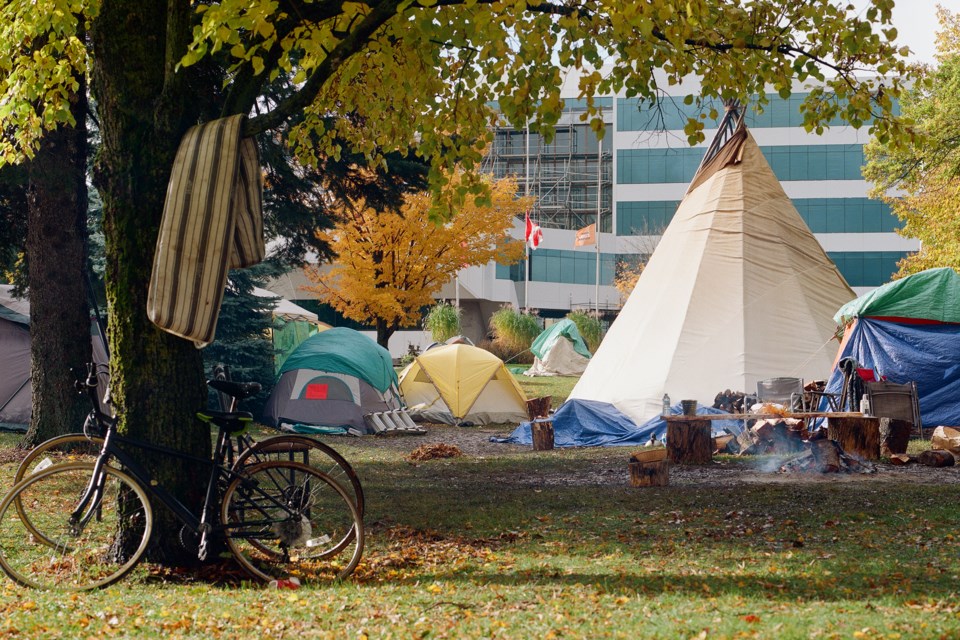More shelter beds, additional street outreach and short-term loaning of money to people struggling to pay rent and utilities are three recommendations made recently to the local social services administration board to help combat housing and homelessness issues in Sault Ste. Marie.
If all the recommendations were to be implemented an estimated $6.3 million would be needed.
The District of Sault Ste. Marie Social Services Administration Board (DSSAB) recently hired consulting group OrgCode to conduct a review of the current system and services after it was evident they were not meeting the increased and sustained needs of the community.
DSSAB CEO Mike Nadeau said the consulting group was asked to look at the opioid crisis in Sault Ste. Marie through the lens of housing and homelessness.
“If we had a magic wand, what would we do and where do we need to get to to help the community in the current state it is in?” said Nadeau about the reason for the review during an interview Wednesday.
Although there are dollar amounts attached to some aspects of the review, there is currently no request for funding to implement the recommendations from either the province or city.
“Obviously there are going to be budget discussions happening over the fall and into next year. We assume some of the meat in that report will get baked into a budget request, but it’s just a snapshot because people have been asking if there is a plan,” said Nadeau.
The pandemic has made the homelessness situation in the Sault even worse over the last two-plus years, including a number of encampments popping up in different parts of the city, like the one on the front lawn of the Civic Centre last fall. Nadeau said the system was significantly stressed, staff were burning out and the service model was not sustainable.
“Since the encampments started there have been a whole lot of disruptions to the system,” said Nadeau. ”Now that we are starting to get out of the pandemic, the impact of the pandemic doesn’t go away for marginalized people, unfortunately.”
Three strategic directions were identified by DSSAB senior management to combat the issue — strengthen the local homelessness system, strengthen homelessness prevention services and to have Sault Ste. Marie Housing Corporation become a full housing and asset development agency.
Currently, the DSSAB has only 10 supportive beds to serve the entire population. OrgCode recommends a minimum of 80 supportive beds are needed in the community, with 24/7 on-site support workers available.
Although adding the 80 supportive beds would require an additional $4.8 million in annual funding, Nadeau said in a report to the board that studies have shown providing permanent supportive housing is less costly than sustaining people in homelessness.
”It also improves quality of life, decreases interactions with emergency services like paramedics, police and hospital and can act as a catalyst for downtown revitalization and support economic development plans,” he said in the report.
An additional 25 additional shelter beds is also recommended to be added to the current 83 units at a cost of an additional $765,000 per year for the next three years until additional, supportive housing beyond the current plan are brought on-line.
OrgCode also recommended expanding on the current Downtown Ambassador pilot program, which is a partnership between the City of Sault Ste. Marie and CMHA, to go further and offer robust street outreach across the entire community.
By expanding to all parts of the community, Social Services and its partners can be better resourced to offer street outreach to the encampments now found in the city, said OrgCode in its review.
The expanded street outreach would be offered seven days a week, 16 hours per day at a cost of $475,000 and would be in addition to the Downtown Ambassador pilot program.
Another idea put forward in the recommendations is an expansion of the DSSAB’s rent and utility bank to $250,000 annually to help prevent people from becoming homeless in the first place.
The bank — currently funded at $112,500 annually — allows people access to limited time-based funding to ensure rent and utility arrears are taken care of. This prevents evictions and takes pressure off the shelter service.
“It is well used, that’s why we think it should be increased,” Nadeau told SooToday.
The final strategic direction calls for the Sault Ste. Marie Housing Corporation to become a full housing and asset development agency.
The DSSAB supports 1,879 subsidized housing units across the community, 10 more than its legislated target. Even so, there are currently 1,580 people or families on the waiting list for subsidized housing in the community.
At the same time that demand for subsidized housing is rising, the DSSAB is finding fewer people are exiting social housing units, causing more pressure on the wait list.
If all recommendations are implemented, the DSSAB estimates $6.3 million in additional annual funding would be needed.
